Elevate Your Web Scraping Skills with These 4 Exciting Projects
Written on
Chapter 1: Introduction to Advanced Web Scraping
If you've been involved in web scraping for a while, you might realize that merely knowing Python and utilizing libraries such as Selenium is sometimes insufficient. Challenges like CAPTCHAs or the risk of your IP being blocked can hinder your scraping efforts.
While not every website has stringent anti-scraping measures, it's wise to prepare for such hurdles before attempting to scrape those sites. The intention behind these web scraping projects is to equip you with the techniques and tools necessary to navigate potential obstacles effectively.
Disclaimer: Some links in this article are affiliate links.
Section 1.1: Project #1 - Scraping LinkedIn While Overcoming Security Measures
LinkedIn data stands out among social media platforms for its professional relevance. The site attracts individuals eager to enhance their careers—students, employees, recruiters, and more—all of whom are potential customers for your offerings. Understanding their interests and outreach methods is crucial.
One way to obtain this information is by scraping LinkedIn profiles. The process isn't overly complicated. For instance, inspecting a profile reveals the necessary details:
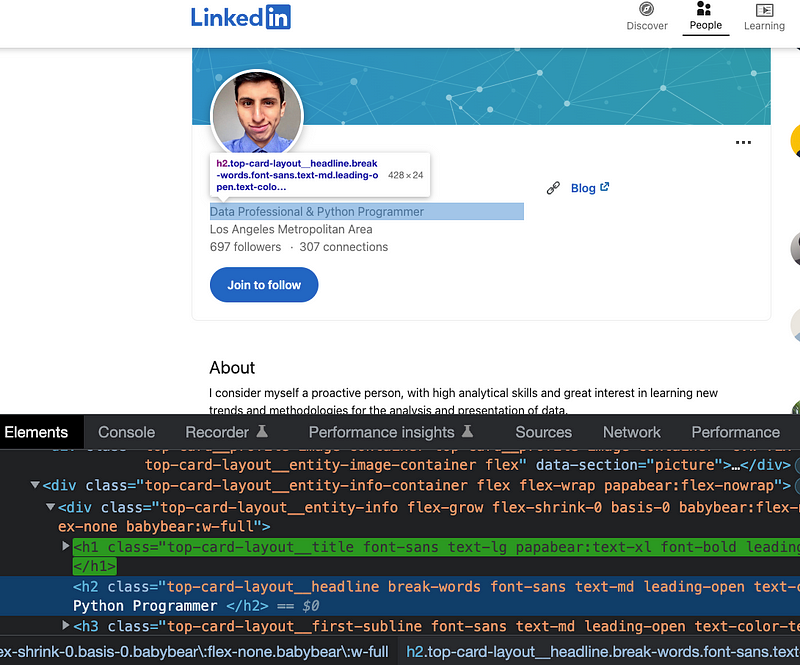
With the appropriate XPath, we can extract names and job titles:
//section[@class="profile"]//div/div/h1 #name
//section[@class="profile"]//div/div/h2 #job title
The challenge lies primarily in bypassing LinkedIn's CAPTCHA system.
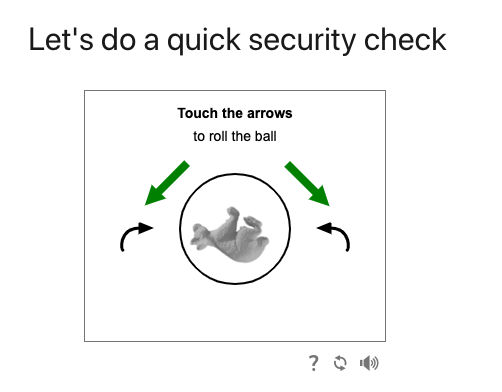
Resolving CAPTCHAs can be tricky, but I recommend a tool called Web Unlocker. This software mimics genuine user behavior, allowing you to send numerous requests without risking a block. It effectively circumvents CAPTCHAs and other restrictions.
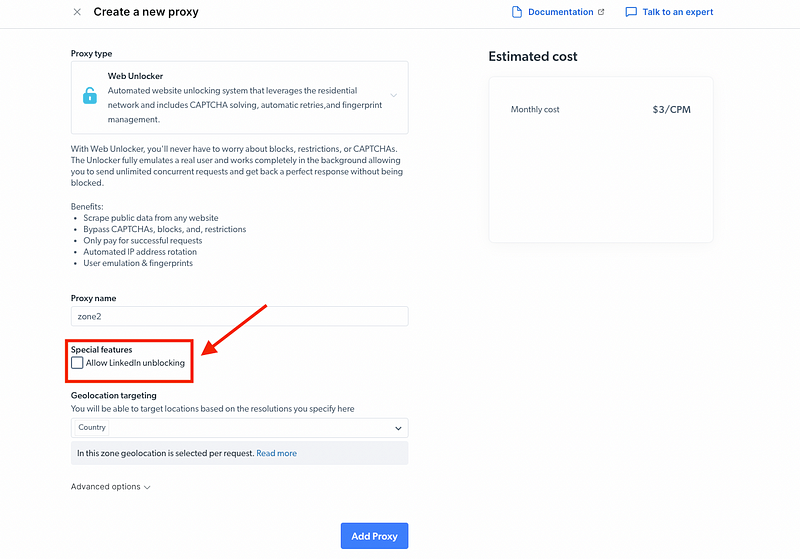
Section 1.2: Project #2 - Scraping Amazon Without Getting Blocked
In a previous article, I discussed using ChatGPT to generate scraping code for Amazon. However, what happens if you face blocks after sending too many requests? To prevent this, rotating proxies is essential.
While free proxies are available, I advise against using them due to their unreliability and performance issues. Instead, I invest in premium proxy services like Bright Data, which ensures privacy and optimal performance.
With Bright Data, you have access to proxies from 195 countries and over 72 million ethically-sourced IPs. Their proxy manager offers advanced features like rotation management and detailed logs.
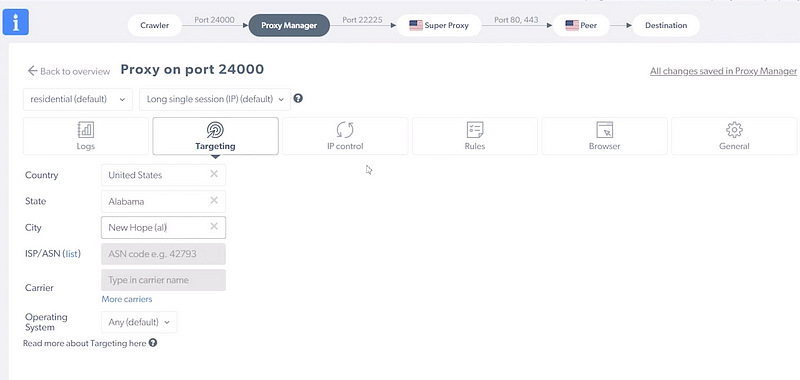
Once you set up a residential proxy, integrating it with an API is straightforward, allowing you to use various programming languages, including Python and Java.
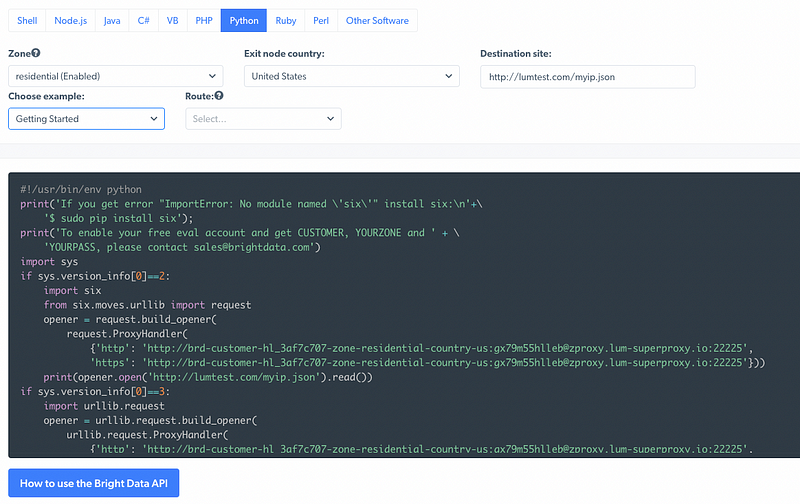
Chapter 2: Automating Airbnb Price Monitoring
In this project, we’ll go beyond mere data scraping; we’ll create an application that alerts us when an Airbnb listing's price decreases. Since Airbnb lacks an API, we need to begin by scraping its platform.
Many are familiar with Airbnb’s interface. By selecting a destination along with check-in and check-out dates, we can view a list of available properties.
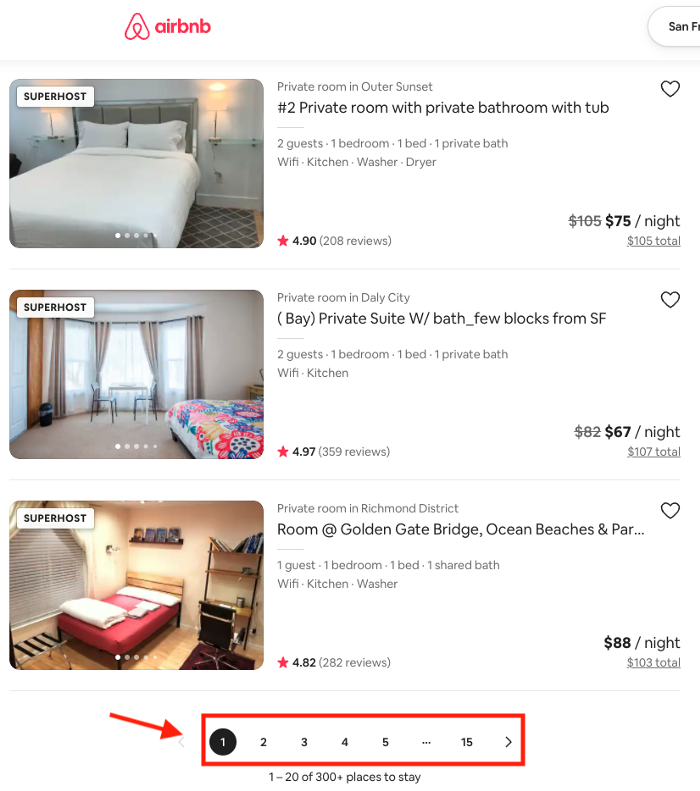
The primary challenge in scraping Airbnb involves managing pagination and extracting data from multiple listings. This can be accomplished with tools like Selenium or Scrapy. Alternatively, Bright Data offers a web scraper IDE that simplifies the scraping process with code templates.
Following the scraping, you can create your app guided by a YouTube tutorial.
The first video provides insights into using Python for web scraping on Amazon, offering practical tips for building a Data Analyst portfolio project.
Chapter 3: Building a Search Engine Crawler
Web scraping and crawling are distinct processes. While scraping extracts data from websites, crawling is focused on discovering links across the internet. This method is crucial for search engines like Google and Bing, which index online content.
For this project, gather search results from any engine of your choice (Google, Bing, DuckDuckGo, etc.). The challenge lies in adapting to the frequently changing structure of search engine results pages (SERPs), which can vary based on user history, device type, and location.
To streamline this task, consider utilizing a SERP scraper API.
The second video offers a beginner-friendly approach to web scraping with BeautifulSoup, making it an excellent resource for those starting their scraping journey.
By engaging with these projects, you’ll not only enhance your web scraping skills but also prepare yourself for real-world challenges in data extraction.